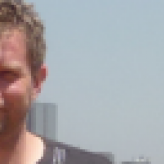Hi all,
On Monday I attended an information session with DGIS/UNICEF who shared the new WASH strategy for 2016-2030. It was a very interesting session and also involved discussions on innovation. In small groups, we discussed what we could do differently and what are entry points for collaboration. Some people went into the thematic areas for collaboration, which is often the basis, and others looked more at the structures - bringing different hats together. Of course, knowledge sharing came up as a discussion point.
I was reminded again about our discussions during the Ghana Learning Tour, see https://www.viawater.nl/community/learning-tour-in-ghana-a-reflection and how difficult it is to create a space where people feel comfortable to share their knowledge.
It was raised that it matters who has access to the data, and what value we place on it? We are actually overwhelmed with information, so which type of information do you go for - which one do you trust and why? What is relevant for you? How can we have a community where don't just send information 'out there' but provide a space for discussion?
I am very curious to hear from others in the community what kind of structures/systems you have in your organisation that facilitate knowledge sharing for the purpose of improving our day to day work?
Thank you!
Lisa



Dear Lisa,
thank you for sharing your experience from this information session from DGIS/UNICEF. We have also talked about this during the Sharing Skills Seminar and it was quite difficult to get a grip on this whole 'sharing-stuff'. Although everybody learns a lot during his life, it is not always easy to make that knowledge accessible for everyone who could/should use it. I am now reading a really interesting book about Practical Knowledge Management from Chris Collison. I also used his experience in my presentation the other day in Nairobi. His book is called: Learning to Fly and you can find more information at his own website: http://www.chriscollison.com/. You can always borrow my book (and CD-ROM) if you want! And that counts also for the rest of you, of course...
Warm regards, Willemijn
Nice thanks for sharing Willemijn! Let me know when you have finished reading and I happily borrow it from you :) (in line with the sharing economy!)
Hi all,
This is a timely post because I just had a great conversation with one of our "competitors" today in Kenya, and we had such a great sharing of information.
I straddle two worlds: research and industry. In both worlds, we are just humans operating according to our personality and experience. I have found that many do not want to share information because they don't want anyone to "steal" their ideas. Our egos and personal/economic interests get in the way of this sharing. My industry work colleagues always say "Don't say too much". As an academic, my approach has always been "Why re-invent the wheel?"
So, after talking with what could be considered a "competitor" today, I realized how important developing trust is before we share any detailed/accurate information. I say "detailed/accurate" because I've been in meetings where people go out of their way to be vague or just make up information they're pressed to provide. And so as the recipient of information, I've learned to not always trust what someone else is telling me.
Today I started the conversation by not wanting to say too much due to lack of trust, but after 2 hours, we were sharing costs, budgets, technologies, names of suppliers, and our own personal thoughts on our successes and failures.
We need to understand each other before we trust that others won't take advantage of our "good will" to openly share what has cost us a lot of time, money, headaches, heartaches, and sometimes our sanity.
Working as a North American in Africa, I can also say that cultural differences in communication act as obstacles to the type of sharing Via Water is trying to promote. And not only racial or ethnic differences, but gender ones too. I ended up feeling comfortable in sharing all the information I did with another woman after 2 hours talking with her. I probably wouldn't have done this today with the men who were in on the meeting.
My thoughts, for what they're worth. I am committed to not re-inventing the wheel. I would much rather learn from someone else's mistakes than commit my own. The question is, do I trust the information that someone else is giving me? Do I trust someone else's use of my information? Open platforms might be good for general updating and sharing day-to-day thoughts, but might not be the best way to gain the trust needed to share "proprietary" information. As much as social media has done for us, I think person-to-person contact is the preferred platform, especially when one's life work is at stake.
:) Danielle in Ghana
ps: The meeting was between the Slamson group in Ghana and the Nakuru group in Kenya. A great day!
Very interesting points you raise, Danielle! I agree with you that person-to-person is still the best way to communicate and share, as hard as it may be to organise this way of contact and establish this trust you mention. Do you (and others) feel that once you have established personal contact (like for instance our participants of the Sharing Skills Seminar did), it is possible to follow up via social media or a platform like ours? Or does the established trust change/dissapear when you are communicating online after meeting each other?
Hi Karin, I would not share proprietary information on a social media platform--not only would those I have a relationship with access it, but rather those who I don't know as well. For me, social media platforms seem more suitable to general impressions and sound bites (maybe it's my age--I was over 30 when Facebook and Twitter came on the scene, and so I see social media as that, for social reasons).
An option for real data sharing would be open source databases (password protected) where registered participants could upload raw data for others' consideration and use (mostly quantitative, but could be qualitative data as well). The site would provide a filter for those searching information that has not been published. The registration is free, but there is some accountability for use of data (that it is properly attributed, etc.). I have worked a lot with these type of sharing platforms over the course of my career, and they seem to work quite well. However, these have all been in the academic world--not sure how entrepreneurs/private companies would accept this kind of sharing of information that they have paid, often, large amounts of money (10,000 euros+) to collect.
This might be an option for Via Water to consider because many of us have baseline data, environmental assessment data collected for a project, etc. that will never be published, but that might be of use to others looking to launch projects in a region. I know many local organizations/companies that have useful data for us, but we have to end up spending our own money to get the same data they just collected. Frustrating, but I'm learning that the development sector/industry works this way. :(
Thanks for the opportunity to contribute! Happy holidays!
Hi Karin and Danielle,
So interesting to read and I recognise your concerns Danielle. If you have put a lot of (financial) effort into collecting data, it will feel strange to share with others for free, especially when you have the sense that others aren't returning the favour. So it goes back to trust and balancing the 'giving' and taking'. I once had the situation where we contributed quite a lot of information as part of a research but the report was never shared with us - that's not a nice feeling! So it goes also back to real partnership - if you have the feeling that you are in something together - you have a shared vision, then maybe sharing is easier than if you are competing or you feel everyone just want to achieve their own goals. Unfortunately, due to the systems (also with donors), you end up competing over finance; positioning - a shared vision (maybe) but every organisation thinks they have the golden key to achieving this vision. It sounds cliché - but there needs to be a win-win situation and that this situation is there, should be recognised by the different parties involved. "I have something you need, and I need something you have". If that thought isn't there, is there still a good basis for knowledge sharing?
Something to think about during the holidays ;-) Enjoy!
Lisa